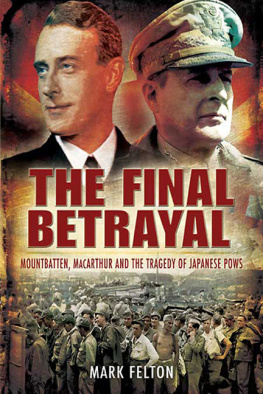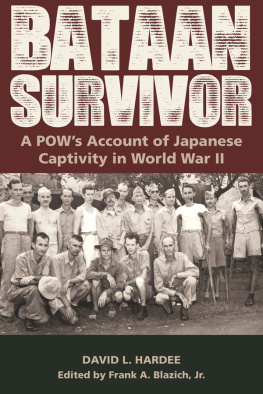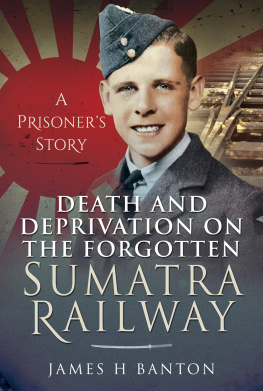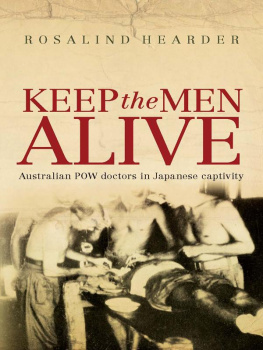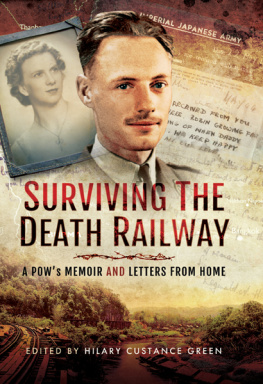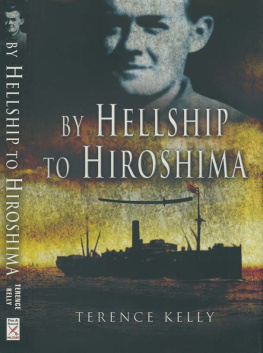Len Baynes - The Will to Live : a japanese POWs Memoir of Captivity and The Railway.
Here you can read online Len Baynes - The Will to Live : a japanese POWs Memoir of Captivity and The Railway. full text of the book (entire story) in english for free. Download pdf and epub, get meaning, cover and reviews about this ebook. City: Havertown, year: 2013, publisher: Pen and Sword, genre: Non-fiction. Description of the work, (preface) as well as reviews are available. Best literature library LitArk.com created for fans of good reading and offers a wide selection of genres:
Romance novel
Science fiction
Adventure
Detective
Science
History
Home and family
Prose
Art
Politics
Computer
Non-fiction
Religion
Business
Children
Humor
Choose a favorite category and find really read worthwhile books. Enjoy immersion in the world of imagination, feel the emotions of the characters or learn something new for yourself, make an fascinating discovery.

- Book:The Will to Live : a japanese POWs Memoir of Captivity and The Railway.
- Author:
- Publisher:Pen and Sword
- Genre:
- Year:2013
- City:Havertown
- Rating:3 / 5
- Favourites:Add to favourites
- Your mark:
- 60
- 1
- 2
- 3
- 4
- 5
The Will to Live : a japanese POWs Memoir of Captivity and The Railway.: summary, description and annotation
We offer to read an annotation, description, summary or preface (depends on what the author of the book "The Will to Live : a japanese POWs Memoir of Captivity and The Railway." wrote himself). If you haven't found the necessary information about the book — write in the comments, we will try to find it.
Len Baynes: author's other books
Who wrote The Will to Live : a japanese POWs Memoir of Captivity and The Railway.? Find out the surname, the name of the author of the book and a list of all author's works by series.
The Will to Live : a japanese POWs Memoir of Captivity and The Railway. — read online for free the complete book (whole text) full work
Below is the text of the book, divided by pages. System saving the place of the last page read, allows you to conveniently read the book "The Will to Live : a japanese POWs Memoir of Captivity and The Railway." online for free, without having to search again every time where you left off. Put a bookmark, and you can go to the page where you finished reading at any time.
Font size:
Interval:
Bookmark:

PEN AND SWORD MILITARY
an imprint of
Pen and Sword Books Ltd
47 Church Street
Barnsley
South Yorkshire S70 2AS
PDF ISBN: 978 1 47382 917 6
EPUB ISBN: 978 1 47382 831 5
PRC ISBN: 978 1 47382 874 2
as the author of this work has been asserted by him
in accordance with the Copyright, Designs and Patents Act 1988.
in any form or by any means, electronic or mechanical including photocopying,
recording or by any information storage and retrieval
system, without permission from the Publisher in writing.
CPI Group (UK) Ltd, Croydon, CR0 4YY
Pen & Sword Aviation, Pen & Sword Family History, Pen & Sword Maritime,
Pen & Sword Military, Pen & Sword Discovery, Wharncliffe Local History,
Wharncliffe True Crime, Wharncliffe Transport, Pen & Sword Select,
Pen & Sword Military Classics, Leo Cooper, Remember When,
The Praetorian Press, Seaforth Publishing and Frontline Publishing
Pen and Sword Books Limited
47 Church Street, Barnsley, South Yorkshire, S70 2AS, England
E-mail:
Website: www.pen-and-sword.co.uk
Dr John Hudson, Fellow of Jesus College, Cambridge,
for editing this work
Font size:
Interval:
Bookmark:
Similar books «The Will to Live : a japanese POWs Memoir of Captivity and The Railway.»
Look at similar books to The Will to Live : a japanese POWs Memoir of Captivity and The Railway.. We have selected literature similar in name and meaning in the hope of providing readers with more options to find new, interesting, not yet read works.
Discussion, reviews of the book The Will to Live : a japanese POWs Memoir of Captivity and The Railway. and just readers' own opinions. Leave your comments, write what you think about the work, its meaning or the main characters. Specify what exactly you liked and what you didn't like, and why you think so.

